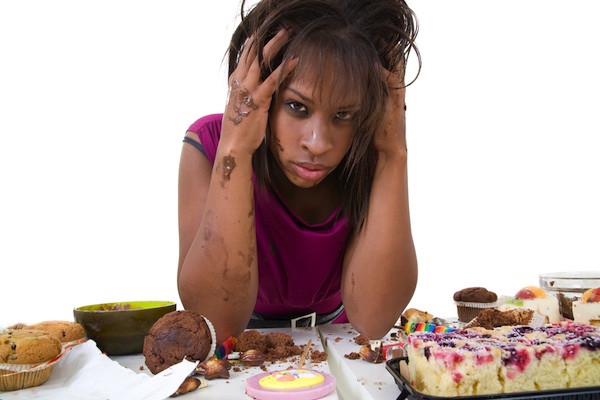Remember the last time you ate so much that you felt sick, and with dried marinara on your chin you decried, “I’m in a food coma!”? You had been binge eating, and you could be mentally ill.
On May 18, the American Psychiatric Association released the DSM-5, the most recent update to the Diagnostic and Statistical Manual of Mental Disorders. For the first time in the manual’s 60-year history, binge eating was included. For mental health professionals, insurance companies, pharmaceutical corporations, and the legal system, this handbook acts as the official and standard criteria for classifying mental disorders. Since everyone occasionally overeats, the designation of binge eating as a legitimate mental illness almost seems imprecise and excessive, but binging is associated with seriously negative psychological symptoms.
The inclusion of binge eating in the DSM-5 is a contentious issue in the mental health community, because some feel it will be over-applied or linked to common problems with overeating.
To illustrate my point, let’s go back to that food coma. After you’ve overeaten, you didn’t feel well, and you were bummed out, confused as to why you thought six slices of pizza and a two liter of soda was a good idea, and you probably wanted to turn back time and eat a salad. Those feelings are light-hearted representations of depression, guilt, and lack of self control, which are all manifestations of a mental illness.
However, like all diseases, binge eating must meet specific diagnostic criteria before it can be identified and treated. Brooke Randolph, our resident Licensed Mental Health Counselor, says “All of the criteria must be met to qualify as a binge eating disorder. If at a summer cookout someone eats more than intended, but they do not feel out of control and it is only a single episode, it would not qualify as a diagnosis.”
Brooke says treatments for binge eating would be in keeping with other psychiatric diseases, as counseling and medication are common forms of binge eating therapy. But if the first thing you want to do after binge eating is head to the gym, then follow your gut.
“Some of the first strategies I employ to assist my clients [with] common mental health concerns include working on physical energy habits, such as nutrition, sleep, and exercise,” says Brooke. “Our physical and mental health are entwined.”
If you feel your binge eating is a serious mental health concern, know that it’s a treatable disorder and insurance could cover it, so visit a physician or mental health therapist. And if you know better, develop a balanced nutritional and fitness routine so overeating episodes are less likely to occur. It’s amazing how much better you’ll feel once you start to shape a healthier you.
Also Read:
7 Mental Health Reasons to Run

